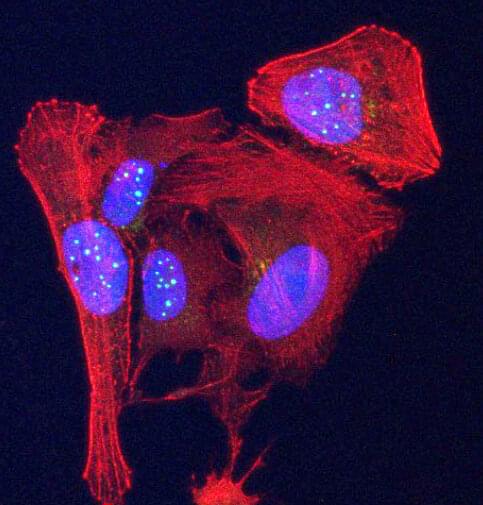Once thought incapable of encoding proteins due to their simple monotonous repetitions of DNA, tiny telomeres at the tips of our chromosomes seem to hold a potent biological function that’s potentially relevant to our understanding of cancer and aging.
Reporting in the Proceedings of the National Academy of Sciences, UNC School of Medicine researchers Taghreed Al-Turki, Ph.D., and Jack Griffith, Ph.D., made the stunning discovery that telomeres contain genetic information to produce two small proteins, one of which they found is elevated in some human cancer cells, as well as cells from patients suffering from telomere-related defects.
“Based on our research, we think simple blood tests for these proteins could provide a valuable screen for certain cancers and other human diseases,” said Griffith, the Kenan Distinguished Professor of Microbiology and Immunology and member of the UNC Lineberger Comprehensive Cancer Center. “These tests also could provide a measure of ‘telomere health,’ because we know telomeres shorten with age.”
